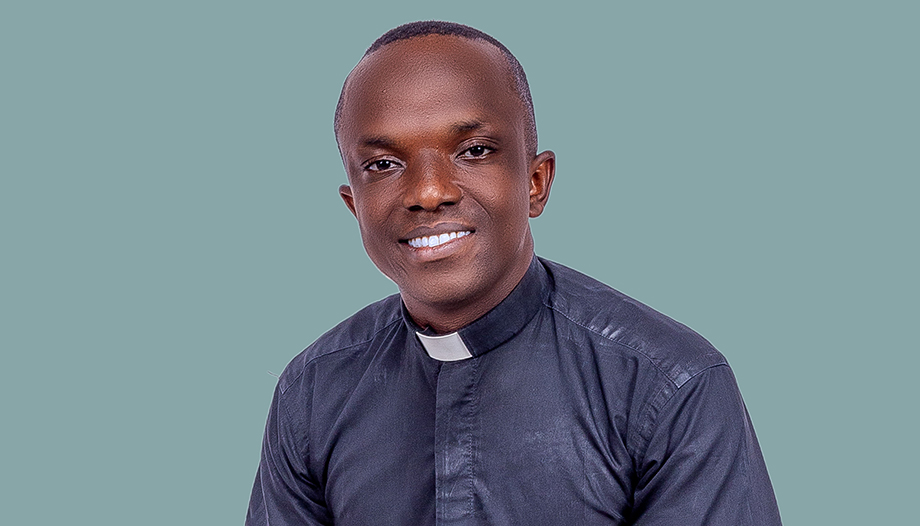Emmanuel Enwenwen was born into a Catholic family in Nigeria. At the age of 12 he entered the minor seminary and, years laterdriven by an ardent zeal to serve God and humanity, entered the major seminary. After a decade of formation, he received priestly ordination on July 7, 2018.
How did you discover your vocation to the priesthood?
-Growing up in a Catholic family and in a Catholic community had a lot of positive influence on my faith. I grew up seeing Catholic priests as agents of hope because of the role they played in our community. The selflessness of these priests who dedicated their lives to serving the needy and the sick was a great source of inspiration to me. The desire to bring the message of hope to the people in their difficult times became a burning zeal that led me to the altars.
What was the reaction of your family and friends when you told them you wanted to become a priest?
-Their reaction was positive. They assured me of their support and promised never to be an obstacle to my progress and mission. I have enjoyed that support until today. I owe them eternal gratitude and pray for them every day.
How would you describe the Church in Nigeria?
-The Catholic Church in Nigeria has remained a mother focused on the salvation of all her children. This has yielded many positive results, as seen in Mass attendance.
This faith commitment is also seen in the number of vocations to both the priesthood and religious life. A few years ago, we were beneficiaries of missionaries who came to evangelize us. Today many Nigerians have become missionaries in different parts of the world.
What are the challenges facing the Church in your country?
-The Catholic Church in Nigeria faces numerous challenges as it strives to fulfill its spiritual and social mission. One of the main problems is insecurity. There is violence from insurgent groups, bandits and kidnappers who attack clergy, laity and even places of worship, disrupting pastoral activities and spreading fear. In fact, in some parts of the country, the Church has become an easy route to martyrdom.
How do you see the future of the Church in Nigeria?
-The future of the Catholic Church in Nigeria has profound significance, not only for the faithful, but for the soul of the nation itself. Thanks to a young and dynamic population, the Church has the capacity to reshape the moral landscape of the nation. Moreover, with the many young people in the seminaries and convents, there is great hope of continuity for the future.
What do you appreciate most about your education in Rome?
-Studying in Rome is the best thing that can happen to any Catholic priest. Aside from the rich academic possibilities, history and faith converge here in Rome. I immensely appreciate the multicultural character of the Pontifical University of the Holy Cross, which has exposed me to the different cultures of the world. For me it is a long period of learning, unlearning and relearning.
What is your priestly vocation like today?
-The gift of the priesthood is for me one of the greatest blessings I have received from God. I consider myself an unworthy servant entrusted with the greatest privilege of serving the People of God. I feel privileged to celebrate the Holy Eucharist every day and to be the bearer of the Good News of Christ, which is a message of hope. Not only am I happy to be a priest, but I am fulfilled and grateful for the privilege of being a priest.
How does the training received through the CARF Foundation help you in your pastoral work?
-I am a student of Institutional Social Communication. Being a professional in the field of communication equips me with many tools for my pastoral work in today's changing world. Good communication contributes greatly to the success of missionary work.
My training provides me with a critical eye to read the reality around me and communicate a message that brings hope to the people entrusted to my care. The knowledge acquired here will be passed on to other young men preparing for the priesthood in Nigeria.









